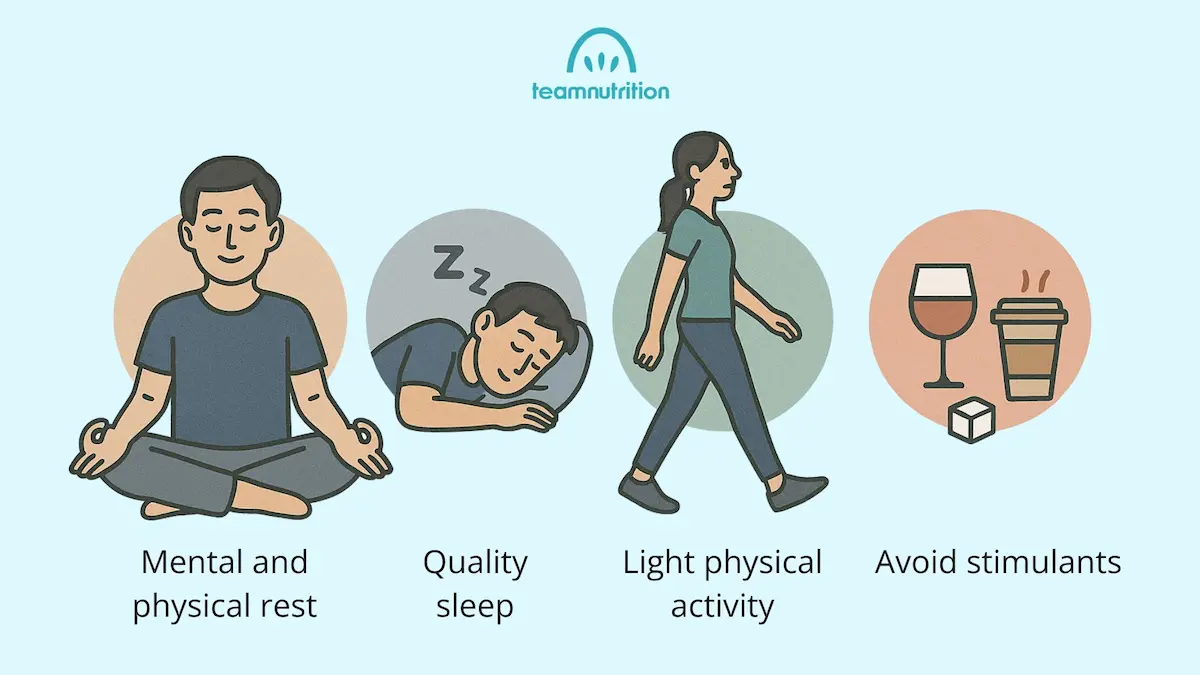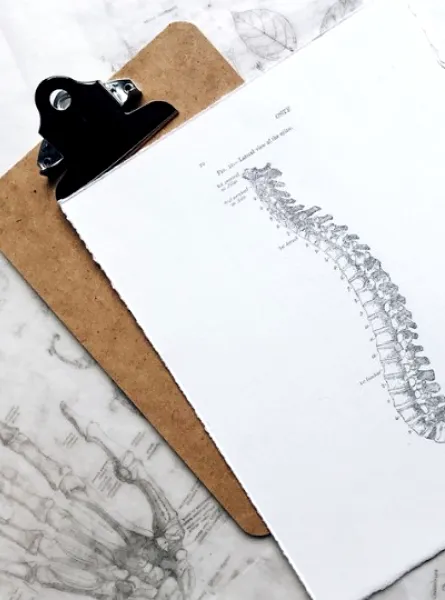
A concussion can disrupt your daily life, but did you know that proper nutrition can positively contribute to your recovery? Learn how to recognize a concussion, which nutrients support healing, and simple habits to help you feel better.
What is a Concussion?
A concussion is a brain injury caused by a blow, fall, or jolt to the head or body. This type of trauma temporarily affects normal brain function, even if there is no loss of consciousness.
Symptoms of a Concussion
.webp)
Symptoms may appear immediately after the incident or a few hours later:
- Physical: Headaches, nausea, dizziness, sensitivity to noise or light.
- Cognitive: Difficulty concentrating or remembering information.
- Emotional: Irritability, sadness, or increased anxiety.
- Sleep: Insomnia or excessive fatigue.
These symptoms vary from person to person, but if you experience them, consult a healthcare professional.
Nutrition to Support Healing
The good news? What you eat can help your brain regenerate and reduce inflammation. Here are key nutrients and tips on how to easily incorporate them into your meals.
1. Managing Appetite During a Concussion
_0.webp)
A concussion can disrupt your routine, and symptoms like nausea, headaches, and fatigue may lead to a reduced appetite. However, maintaining regular meals is crucial for brain recovery and healing.
Tips to Make Eating Easier During Recovery:
- Simplify meal prep: Prepare large batches of easy-to-reheat meals like soups, casseroles, or one-pan dishes. If cooking feels overwhelming, ask a friend or family member for help.
- Quick recipe idea: A hearty chili that freezes well.
- Quick recipe idea: A hearty chili that freezes well.
- Opt for fast meals: Choose recipes that take only 15–20 minutes, like this quick Hummus-Crusted Chicken dish.
- Prepare easy sandwich fillings: Try hard-boiled eggs, canned tuna, or sardines for simple, nutritious sandwich fillings. They pair well with whole wheat tortillas or rye bread.
- Make lunches ahead of time: Try Mason jar meal prep recipes for convenient, ready-to-go lunches.
2. Increase Omega-3s to Reduce Inflammation
_0.webp)
These "good fats" support brain cell repair. Find them in fatty fish (salmon, sardines, mackerel), flaxseeds, chia seeds, and walnuts.
How to Include Them:
- Boost your snack: Pair fruit with a handful of walnuts.
- Make energy bites: Mix nuts and seeds (almonds, chia, sunflower, pumpkin) with nut butter for an easy, portable snack.
- Try a chia pudding: Mix chia seeds with milk and peanut butter for a nutritious breakfast or snack.
- Make salmon rolls: A quick and delicious appetizer or light meal.
- Cook fatty fish: Try pan-seared mackerel with tomato sauce or baked salmon for an omega-3-rich meal.
3. Focus on Antioxidants to Protect Brain Cells
_0.webp)
Colourful fruits and vegetables are packed with vitamins that help protect cells and support recovery.
How to Include Them:
- Make an antioxidant smoothie: Blend mango, carrot, and turmeric for a vitamin-rich drink.
- Add colourful vegetables to meals: Prepare a tray of colourful roasted veggies or prepare a black bean and corn salad.
- Incorporate grated veggies: Add shredded zucchini or beets to patties or homemade bread.
- Use antioxidant-rich spices: Sprinkle turmeric or cinnamon on dishes like curry or oatmeal.
4. Ensure Sufficient Protein for Tissue Repair
_0.webp)
Protein provides amino acids that help regenerate cells and neurotransmitters.
How to Include Them:
- Make Breakfast Burritos: Freeze them for a convenient, high-protein meal.
- Try Marinated Tofu Feta-Style: Add it to salads for a quick, flavourful protein source.
- Include eggs in meals: Make egg muffins for an easy snack or breakfast.
- Prepare a protein-packed cottage cheese bowl: Top with fresh fruit, pumpkin seeds, and a drizzle of honey.
- Add lentils to dishes: Mix them into soup or Bolognese sauce for plant-based protein.
- Make protein-packed wraps: Fill a tortilla with shredded chicken, crunchy veggies, and Greek yogurt dressing.
5. Stay Hydrated
.webp)
A well-hydrated brain functions better! Drink plenty of water throughout the day and eat water-rich foods like cucumber or watermelon.
How to Include Hydration:
- Eat hydrating foods: Snack on watermelon, cucumber, or soup.
- Vary your beverages: Try flavoured water or herbal teas.
- Prepare a comforting soup: Make a large batch to reheat easily throughout the week.
- Start your day with a hydrating smoothie: Try a kombucha smoothie for hydration and probiotics.
Additional Tips for Concussion Recovery

In addition to proper nutrition, adopting these habits can support your brain:
- Mental and physical rest: Limit screen time and avoid mentally demanding activities.
- Quality sleep: Aim for 7 to 9 hours per night to allow your brain to heal.
- Light physical activity: A short walk can improve circulation without overexerting your body.
- Avoid stimulants: Reduce alcohol, caffeine, and refined sugar, as they can worsen inflammation.
Winning Habits for Your Recovery
Recovering from a concussion takes time, but proper nutrition and simple lifestyle changes can accelerate the process. By incorporating key nutrients, delicious recipes, and balanced habits, you provide your brain with everything it needs to heal. Remember: every small step counts towards better health!
Progress at Your Own Pace with Professional Support
Recovering from a concussion can be a real challenge—but you don’t have to go through it alone. With multidisciplinary support, including nutrition and physiotherapy, you can benefit from a comprehensive approach that promotes optimal healing.
A registered dietitian helps simplify your routine, restore your energy, and support recovery through nutrition tailored to your unique needs. At the same time, a physiotherapist guides you in gradually resuming physical activity, working to reduce persistent symptoms, improve balance, and enhance overall function.
With personalized advice and compassionate guidance, you can move forward at your own pace—confidently and with care.
Book an appointment with a TeamNutrition registered dietitian to benefit from coordinated, practical support that’s aligned with your well-being goals.





